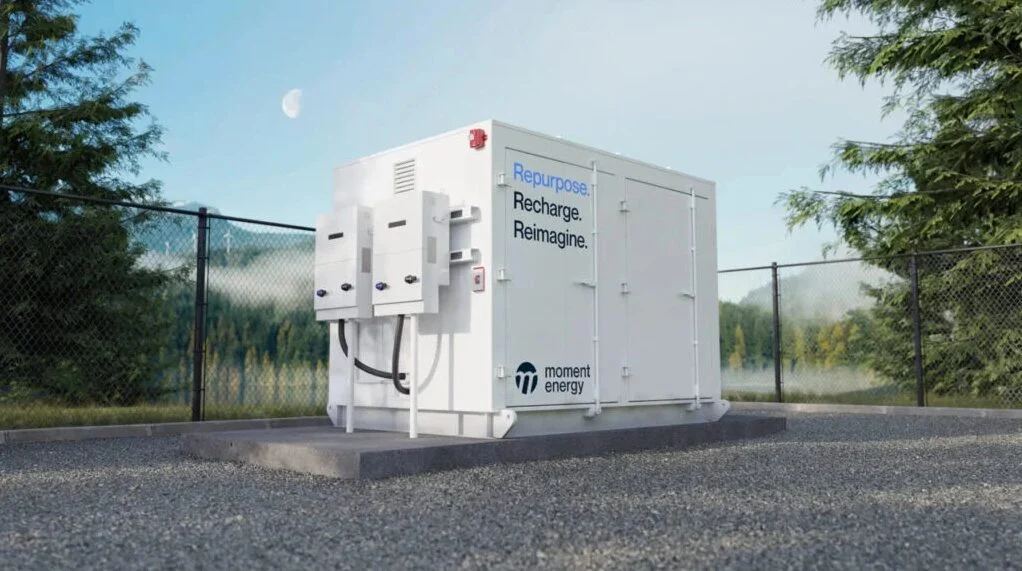Battery energy storage system (BESS) firm Moment Energy has reached full production at its new manufacturing hub in Vancouver, Canada, which repurposes second-life EV batteries into BESS units.
The annual production capacity of the new Vancouver facility has not been disclosed, but Moment Energy has stated that it aims to meet 5.6GWh of demand across North America. The facility produces Moment’s Luna BESS, a 400kWh/1MWh unit that can be scaled into a 10MWh system.
Speaking with our sister site Energy-Storage.news, Edward Chiang, co-founder and CEO of Moment Energy said that Moment acquires its cells by working directly with automotive companies to source batteries from surplus inventory and end-of-life vehicle stock. He added: “Moment currently has access to over 8GWh of supply and will continue to draw from the hundreds of gigawatt-hours that are expected to become available in the next few years.”
The second-life system stores energy during off-peak times and releases it during peak demand, reducing demand charges by as much as 50%. Additionally, it helps prevent outages and decreases dependence on diesel-powered backups.
The Luna BESS also supplies power to operations such as AI-driven data centres, hospitals, airports, food-processing lines, concrete plants and the farming industry. Chiang highlighted its ability to be combined with other Luna BESS up to 10MWh storage capacity.
In 2024, Moment was awarded US$20.3 million by the US Department of Energy to ‘establish the first UL1974 Certified manufacturing facility in the United States dedicated to repurposing EV batteries.’
The funding was to be used for a gigafactory in Taylor, Texas, which, once fully operational, would have a planned annual production capacity of 1GWh.
Chiang says the Taylor factory is still being planned and will “play a crucial role in boosting US production of BESS.”
Multiple factors influenced the decision to open a second-life BESS manufacturing hub in Vancouver. As Chiang explained:
“Vancouver offers a powerful convergence of factors: a world-class talent pool from universities like SFU and UBC; a progressive policy environment that champions the circular economy; and access to clean, affordable power that minimises our operational costs and carbon footprint.”
Chiang said of the Vancouver hub:
“As our production scales to meet our ambitious global targets, we are strategically expanding our footprint to serve key markets more effectively. Our manufacturing hubs in Vancouver and, soon, the US, serve as a launchpad for our global vision and are critical to our goals of repurposing batteries across both facilities and deploying them worldwide.”
The full version of this article is available to read on our sister site, Energy-Storage.news.
Our publisher, Solar Media, will soon launch a brand-new site dedicated to global EV charging infrastructure developments. Called EV Infrastructure News, the site will track market trends, technological breakthroughs and project developments from around the globe. Please visit and follow the official LinkedIn page to learn more.






